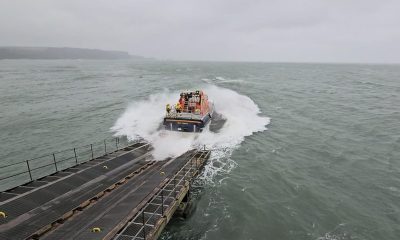Community
Life expectancy in Wales: Unraveling complexities and embracing proactive solutions

NESTLED in the western part of Great Britain, Wales stands as a land of rich heritage and challenges.
Its rugged landscapes, historic castles, and vibrant communities paint a diverse picture. From the towering peaks of Snowdonia to the historic castles that dot its countryside, the visual tapestry of Wales is woven with natural beauty and cultural significance.
However, beneath the surface, Wales grapples with various difficulties, from economic disparities to healthcare concerns. In the shadow of its storied past, Wales confronts the complexities of health, socio-economic conditions, and geographic disparities. Understanding these facets is pivotal to unraveling the factors contributing to the decline in life expectancy.
With its distinct identity and resilient spirit, Wales faces the contemporary trials of a rapidly changing world. The challenges are multifaceted, from the industrial legacy that shaped its valleys to the modern struggles of post-industrial economies.
In the face of economic challenges and transitions, Wales is a canvas upon which the story of life expectancy unfolds. Within this context, we explore the factors influencing the longevity of its people and the proactive measures needed to shape a healthier future.
Exploring life expectancy in Wales begins with an appreciation for its landscapes and recognizing the challenges that shape its communities.
The story of Wales is not static; it is dynamic, ever-evolving, and responsive to the actions we take today. Let us embark on this exploration, peeling back the layers to understand the unique dynamics influencing life expectancy in Wales.
As we keep this discussion, are you a student aiming to attain your educational goals? In pursuing academic success, much like the dynamic evolution of Wales, learners often encounter challenges that require careful navigation. Just as Wales confronts multifaceted trials, students grapple with the complexities of essay writing, facing diverse obstacles in their academic journey.
So, when you get overwhelmed with your academic work, consider this essay writing service as your ideal ally. This service becomes a dynamic partner, responsive to the unique needs of each learner, guiding you through the layers of academic intricacies and shaping a narrative of success in your educational journey.
The Significance of Research on Life Expectancy
As we delve into the intricacies of life expectancy in Wales, it becomes essential to comprehend the nuanced backdrop against which this issue unfolds. Researching life expectancy extends beyond statistical analysis; it is a crucial exploration of societal well-being.
Informed Decision-Making
Research provides the data for informed decision-making in public policy, healthcare, and resource allocation.
Community Uplift
Understanding life expectancy guides strategies to uplift communities, addressing systemic issues that impact overall well-being.
Healthcare Strategies
It informs the development of effective healthcare strategies, ensuring resources are directed where they are most needed.
Resource Allocation
Governments and organizations can allocate resources more efficiently, targeting areas with lower life expectancy and addressing disparities.
Societal Health and Prosperity
This research contributes to societal health and prosperity by identifying and addressing the root causes of lower life expectancy.
Factors Contributing to Low Life Expectancy in Wales
This section aims to uncover the nuanced factors contributing to lower life expectancy in specific regions of Wales. Beyond the surface, a complex interplay of economic disparities, healthcare accessibility, educational gaps, environmental challenges, lifestyle choices, social determinants, and mental health nuances shapes the overall well-being of residents.
These dynamics present challenges that impact the longevity of individuals in different ways. Recognizing and understanding these factors is essential in formulating targeted strategies that address the core issues, fostering an environment where everyone can aspire to lead healthier and longer lives.
⦁ Social Determinants: factors like employment opportunities and social support influence health outcomes.
⦁ Lifestyle Choices: Unhealthy lifestyle choices, including diet and physical activity, significantly influence life expectancy variations.
⦁ Mental health is an often-overlooked factor touching life expectancy. Societies face challenges in accessing mental health resources.
⦁ Economic Disparities: Regions with economic challenges often experience lower life expectancy due to limited access to resources and opportunities.
⦁ Limited Healthcare Access: Areas with inadequate healthcare infrastructure face challenges in providing essential services, impacting the health and longevity of residents.
⦁ Educational Gaps: Educational disparities contribute to health literacy and awareness differences, influencing lifestyle choices and health outcomes.
⦁ Environmental Challenges: Some areas grapple with environmental issues, affecting air and water quality and health.
Proactive Measures for Improved Life Expectancy
This section delves into a proactive approach to elevating life expectancy in Wales. In the face of the challenges outlined earlier, empowering communities requires strategic actions.
From fostering economic opportunities and enhancing healthcare accessibility to promoting education and addressing environmental concerns, these measures are pivotal in fostering a healthier environment.
Encouraging healthier lifestyles, bolstering social support systems, and prioritizing mental health initiatives constitute a roadmap for tangible improvement. As we explore these actionable tips, we aim to equip individuals and communities with the tools to shape a future where well-being flourishes, and life expectancy sees a positive trajectory.
⦁ Economic Empowerment: Fostering economic opportunities in disadvantaged areas can uplift communities and improve life expectancy.
⦁ Bolstering Social Support Systems: Strengthening social connections and support systems positively influences mental health and overall well-being.
⦁ Prioritizing Mental Health Initiatives- Recognizing and addressing mental health challenges is crucial for a holistic approach to improving life expectancy.
⦁ Enhanced Healthcare Accessibility: Investing in healthcare infrastructure and ensuring accessibility can address disparities in health outcomes.
⦁ Promoting Education: Educational initiatives can empower individuals to make informed health decisions, positively impacting life expectancy.
⦁ Addressing Environmental Concerns: Tackling environmental issues contributes to better overall health, addressing factors that influence life expectancy.
⦁ Encouraging Healthy Lifestyles: Community programs promoting healthy habits can improve lifestyle choices and health outcomes.
A Call to Action
The narrative of Wales is one of resilience and potential improvement. By understanding the challenges, embracing research, and taking proactive measures, individuals, communities, and policymakers can collectively contribute to a healthier and more equitable future for all residents of Wales.
The call to action is a commitment to addressing the root causes, fostering positive change, and ensuring that the diverse landscapes of Wales thrive with vitality and well-being.
Community
St David’s Day parade brings colour and celebration to Haverfordwest

HAVERFORDWEST town centre was a hive of activity today (Friday, Feb 27) as hundreds of children from schools across Pembrokeshire took part in a special St David’s Day celebration.
The popular parade, organised by the Pembrokeshire Language Forum, returned to the county town once again, with smiles all round from participants and spectators who lined the streets to watch.
Children paraded down High Street, through Bridge Street and along Quay Street, led by Samba Doc, before gathering at Picton Playing Fields for songs and dancing during an open-air jamboree with entertainer Tomos Tanllyd.
Pembrokeshire County Council Leader Cllr Jon Harvey said: “St David’s Day is always a special occasion in Pembrokeshire, and it was wonderful to see so many young people coming together to celebrate our language, culture and national identity.”
Cabinet Member for Education and the Welsh Language, Cllr Guy Woodham added: “The annual St David’s Day parade is a shining example of what schools in Pembrokeshire do to celebrate the Welsh language and culture, and they are certainly enthusiastic about it.”
Council Vice Chairman and Champion for the Welsh Language and Children and Young People, Cllr Delme Harries said: “It was fantastic to see such enthusiasm from pupils across the county, proudly celebrating St David’s Day.”
Local member Cllr Tom Tudor also praised the event, adding: “It really was a great celebration of St David’s Day and a highlight for Haverfordwest.”
Welsh Language Development Officer Catrin Phillips said the event continues to grow each year.
She said: “The St David’s Day parade, organised by the Pembrokeshire Language Forum, is always a highlight of the year and it’s wonderful to bring schools together to celebrate Welsh language and culture in such a joyful way.
“It has been especially encouraging to see new schools joining us this year, helping the event continue to grow.”
Community
Pub reopens with VIP club launch and free drink offer

A POPULAR Pembrokeshire pub is reopening its doors this week with a new loyalty scheme aimed at rewarding regular customers.
The Griffin Dale Pembrokeshire will reopen for the season on Thursday (Feb 26), with owners Sian and Simon promising roaring fires, fresh seafood and a warm welcome for returning customers.

To mark the reopening, the team has launched a new Griffin VIP Club, designed to give regular visitors small perks throughout the year.
The scheme includes a loyalty drinks stamp card, occasional meal offers, discounts on drinks, birthday treats and early access to events and promotions.
As part of the launch celebrations, customers visiting on reopening day will receive a complimentary drink along with 20% off food and drinks during a special “Thirsty Thursday” promotion.
The owners said the club was intended as a simple way of giving something back to loyal customers rather than a formal membership programme.
“We’re so excited to be reopening for the season and welcoming everyone back,” they said. “It’s just our way of saying thank you to those who support us and pop in regularly.”
Customers interested in joining the VIP Club can sign up at the bar when visiting the pub.

Business
Bosherston Bistro 10pm alcohol licence granted by council
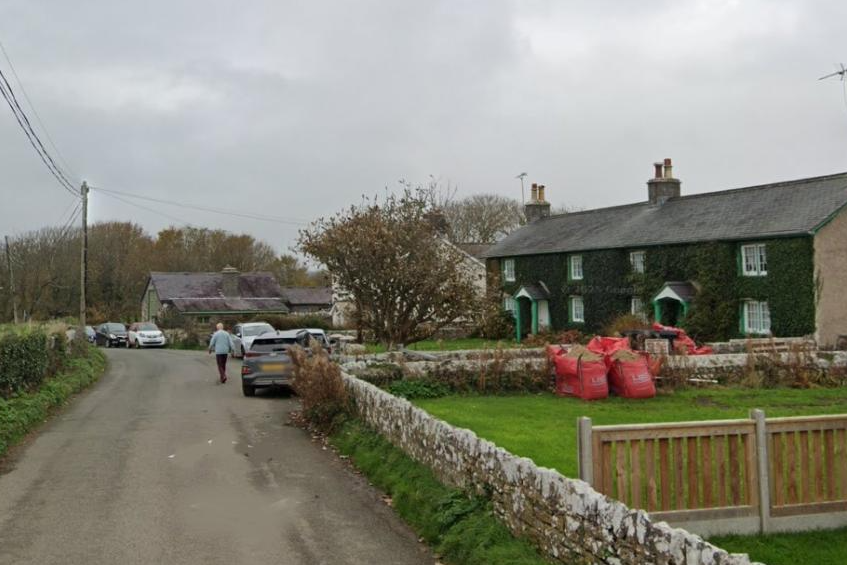
A CALL to allow the selling of alcohol as late as 10pm at a rural beauty spot former village tearoom which objectors fear will “create an absolute nightmare” exacerbating an already growing issue with antisocial behaviour from holidaymakers, has been given the go-ahead.
At Pembrokeshire County Council’s February licensing sub-committee, members considered an application by Sarah Jane Partridge and Robert John Secrett for a new premises licence at Bosherton Bistro, Old World Cottage, Bosherton.
A report for members said it was proposed the premises, formerly a tearoom called ‘Ye Olde Worlde Café’ would open 8am-10pm, selling alcohol from 9am on and off site, seven days a week in the village.
Since the proposal for the site, close to the village pub The St Govan’s Inn, was publicised, 13 objections were received, including Stackpole and Castlemartin Community Council.
In its submissions, the community council said it “will cause a significant public nuisance in the residential area”.
It said the ordinarily tranquil Bosherston, with its neighbouring beauty spot attractions of the lily ponds and St Govans currently has four well-established camp sites “which already frequently cause late night disruption, littering and anti-social behaviour caused predominantly by intoxicated individuals”.
It went on to say: “Instances of aggressive behaviour and trespass are already prevalent within the village by visitors under the influence of alcohol.”
Concerns raised by members of the public included fears of “an increased problem with drunkenness, drink driving and antisocial behaviour,” and it would “make life for the residents in the immediate area an absolute nightmare”.
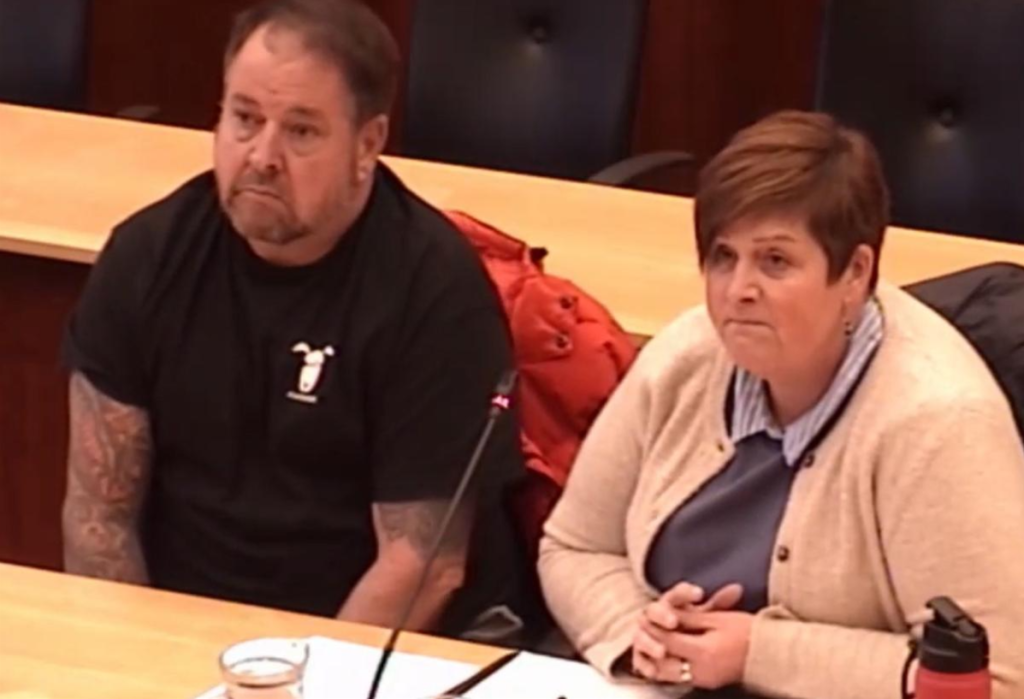
Speaking at the meeting, applicant Sarah Jane Partridge said they shared “the same fundamental aims as the residents,” with the scheme “not about creating a drinking venue but a food-based family bistro”.
She stressed that campers were already able to buy alcohol from the pub, or bring their own to the campsites, adding the 84-cover bistro would introduce safeguarding measures around the sale of any alcohol; off-site sales consisting of ‘gift-set’-style alcohol craft packages rather than “cans of lager”.
Objector Rik Guly said there had been many public order incidents over the years in the 36-home village relating to visitors from the campsites, as well as empty beer bottles, tampons and tins littering the area, one farmer also having his ‘honesty box’ stolen on several occasions; the application “effectively throwing a catalyst for more alcohol consumption and more public disorder”.
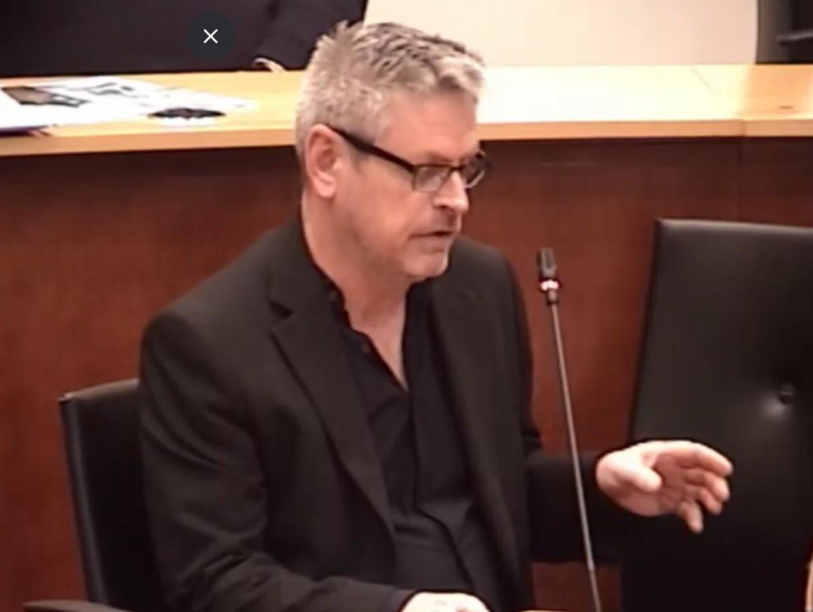
He also raised concerns it could restrict access along the narrow road to the nearby coastguard building for emergency services.
Another objector Clare Strudwick said “almost half the village” was objecting to the scheme which would cause “unacceptable public nuisance”.
Representing the community council, local county councillor Steve Alderman, who once farmed in Bosherston himself, said post-Covid visitor interest in the area had been raised “immeasurably,” with huge numbers attracted to the area.
He said that, while “antisocial behaviour, both physical and verbal” and “a complete lack of respect for what is a marvellous-looking village” was “society’s fault,” the resident’s had a right to enjoy their quality of life.
After the committee deliberated, chair Cllr Tony Wilcox said they had considered the range of objections but considered they were “not of sufficient seriousness to consider rejecting the application”.
The licensing application was approved, objectors hearing that decision could be appealed within 28 days.
-

 Local Government6 days ago
Local Government6 days agoCandidate who withdrew from Hakin race will still appear on ballot paper
-

 Crime6 days ago
Crime6 days agoBBC documentary reveals local man murdered mother then lived with her body
-
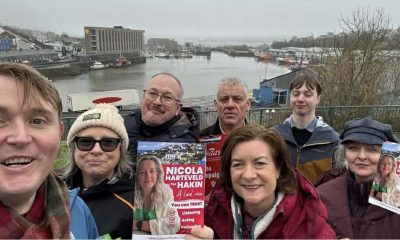
 Local Government6 days ago
Local Government6 days agoFirst Minister left red-faced as Labour candidate pulls out during Hakin campaign visit
-

 News4 days ago
News4 days agoLabour and Plaid criticised over £1.2m anti-racism ‘metaverse’ project
-
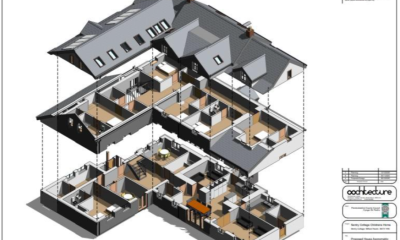
 Community6 days ago
Community6 days agoPembrokeshire Milford Haven children’s home approved
-

 Crime5 days ago
Crime5 days agoEleven-year jail term for rape after judge finds victim ‘particularly vulnerable’
-

 Charity5 days ago
Charity5 days agoCharity launches bid to save Foley House with new community cooperative
-

 Community6 days ago
Community6 days agoLetterston nursery equipment could be stored in cemetery













